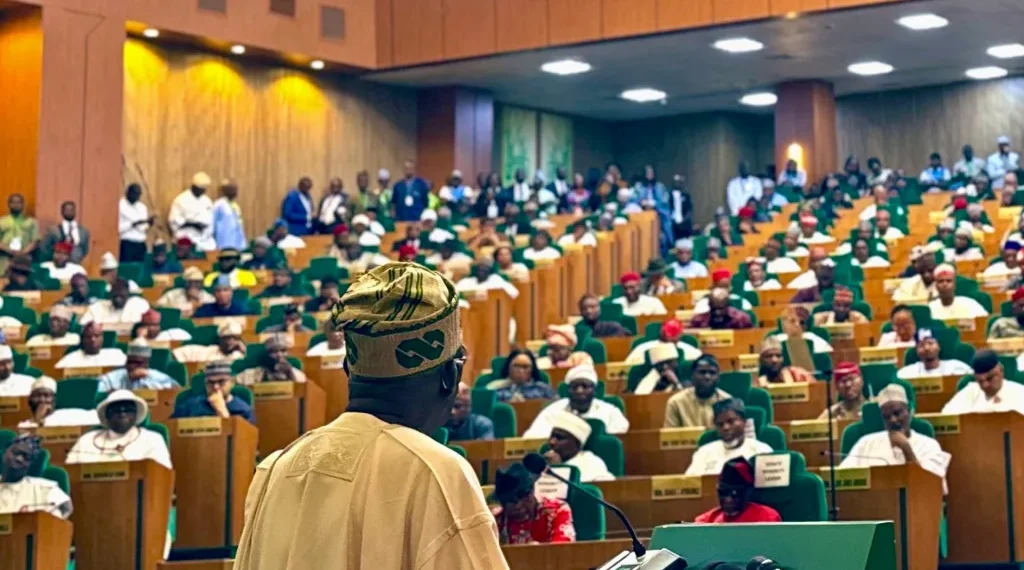The recent presentation of the 2025 appropriation bill by President Bola Ahmed Tinubu has sparked widespread reactions across Nigeria. Titled the “Budget of Restoration: Securing Peace, Rebuilding Prosperity,” the N49.7 trillion proposal has drawn scrutiny from economists, academics, and citizens alike, raising questions about its timing, feasibility, and potential impact on Nigeria’s struggling economy.
President Tinubu unveiled the budget before the 10th National Assembly on Wednesday, December 18, marking his second budget presentation as Nigeria’s president. In his address, he outlined ambitious targets, including reducing inflation from 34.6% to 15% by 2025, strengthening the naira’s exchange rate from approximately ₦1,700 to ₦1,500 per US dollar, and increasing crude oil production to 2.06 million barrels per day (mbpd).
While the president expressed optimism that the 2025 budget would address key economic challenges, many Nigerians remain skeptical. Economic expert Professor Kabir Isa Dandago from Bayero University, Kano, described the budget’s timing and projections as troubling.
“This is the first time Nigeria’s budget presentation has been delayed until mid-December. Typically, budgets are presented in September or October to allow lawmakers ample time to review and finalize them before January,” Prof. Dandago stated.
He also expressed concerns over the heavy reliance on oil revenue, taxes, and loans to fund the budget. “The proposed N48 trillion depends heavily on oil money, which might not be sufficient to cover the budget. The figures are high, and unless there’s a realistic plan to curb inflation and strengthen the economy, this budget may add to the financial hardship Nigerians are already facing,” he warned.
Read also: Court of Appeal strikes out judgment seeking to stop Rivers allocation
Despite these reservations, the budget outlines key areas for improvement, including agriculture, natural resources, business development, and healthcare, particularly for women and children. However, Professor Dandago stressed the importance of transparency and accountability in executing the proposed plans.
“If the funds are utilized as outlined, with honesty and integrity, this budget could help alleviate Nigeria’s economic challenges,” he said. However, he cautioned that past budgets have often failed to deliver on their promises, leaving citizens disappointed.
Professor Dandago further warned that if the ambitious targets within the budget are not met, Nigeria’s economy could face severe consequences. “The predictions in this budget are crucial. If they don’t work as planned, the country’s economy could be in serious danger,” he concluded.
As Nigerians await the National Assembly’s review and approval of the budget, the conversation continues about whether the “Budget of Restoration” can truly deliver on its promises or will become another missed opportunity to address the nation’s pressing economic issues.






